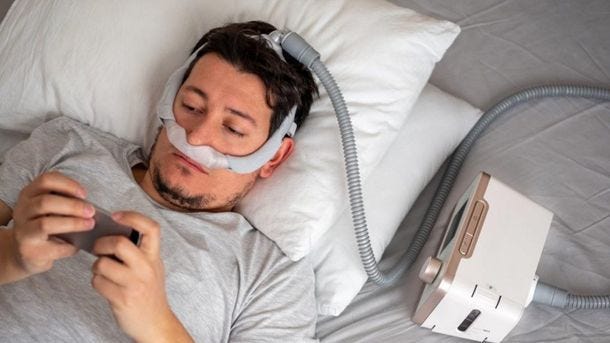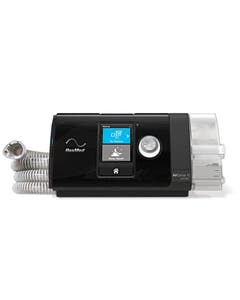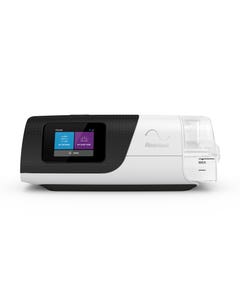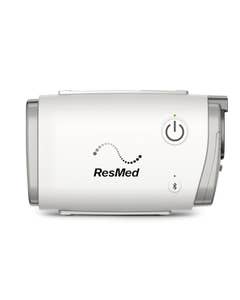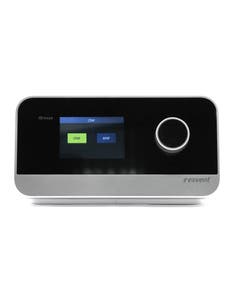How to Improve CPAP Compliance
CPAP Compliance. It’s a word that people with obstructive sleep apnea hear regularly, and also concept that’s critically important in making sure patients experience the positive benefits their therapy is designed to provide. Simply put, compliance means following through with all aspects of therapy as prescribed by your physician. Below we present an overview of sleep apnea followed by seven helpful tips on how to improve CPAP compliance.
Sleep apnea: an overview
The tip on how to improve CPAP compliance is to understand the disease. Obstructive sleep apnea is a medical condition that affects an estimated 18 million American adults, many of whom don’t realize they have it and are classified as undiagnosed. The condition is characterized by periodic breathing stoppages during sleep, some lasting as long as two minutes and happening several or as many as 100 times per night. The result is decreased blood and oxygen flow to the brain, which leads to common symptoms such as daytime sleepiness and mental lethargy. Left untreated, sleep apnea can cause many health problems including:
- High blood pressure
- Stroke
- Heart failure/heart attack
- Diabetes
- Depression
- Headaches
- Increase in ADHD symptoms
Why Leaning How Improve CPAP Compliance is Important
As unfortunate as sleep apnea may sound, there is a form of treatment that has been documented by many entities, including the Agency for Healthcare Research and Quality (AHRQ), as being least invasive and most effective in treating this disorder. CPAP stands for “continuous positive airway pressure,” provided by specialized airflow machines and a connected mask.
A report from AHRQ stated that a CPAP machine, which delivers the precise amount of air needed to keep patients’ airways open during sleep “is highly effective in improving sleep and related symptoms of obstructive sleep apnea by improving airflow.” Weight loss and surgical options also may be effective, although the evidence behind these treatments is not as strong, according to the report.
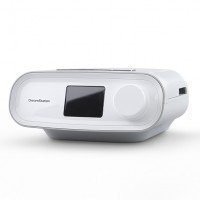
CPAP machines come in a variety of styles and sizes; generally, they are small bedside units, and many are designed for convenience when traveling. The machine delivers air through the nose or both the nose and mouth via a mask and connected tubing.
CPAP therapy works for the majority of patients with sleep apnea – but only if they use CPAP machines consistently. Let’s look at how all CPAP users can get the most out of their therapy.
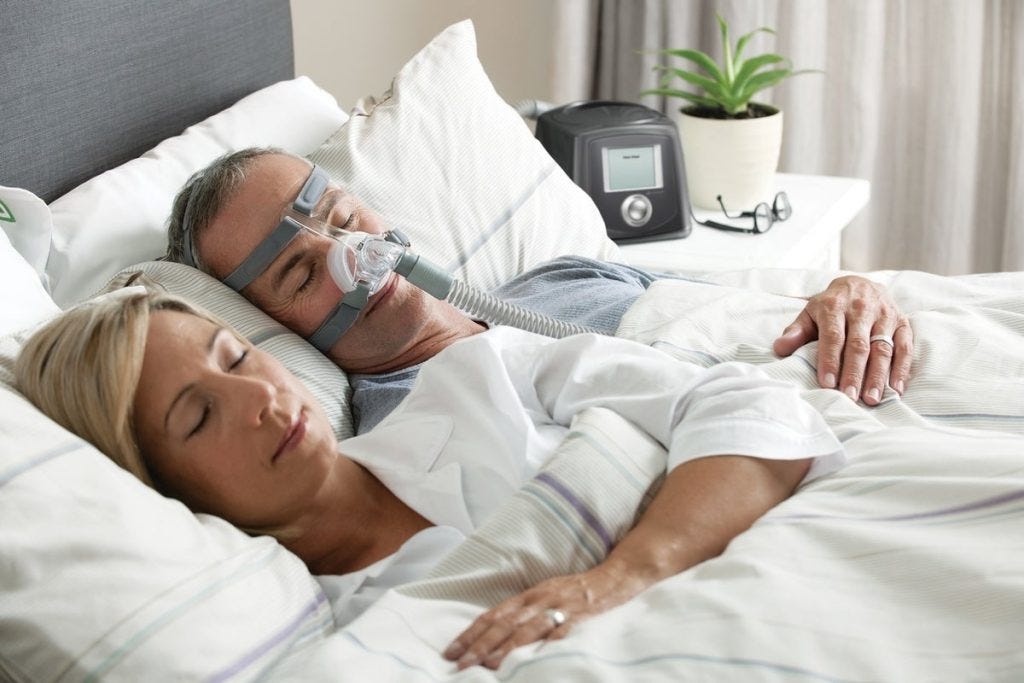
7 Tips to Improve CPAP Compliance
- Be proactive about your treatment
Take time to ask your doctor or equipment provider questions in order to become knowledgeable about the disorder and your treatment options. Understand how the equipment works and what you should expect as well as your part in the process. Don’t hesitate to try something new if what you’re currently doing isn’t working. This goes for the CPAP supplies, your doctor and your equipment provider. - Understand the latest CPAP technology
CPAP equipment is constantly improving, as you’ll see below. Manufacturers are making products more lighter, portable, comfortable, usable and efficient. The CPAP Shop is a good place to start keeping up on the latest and greatest machines, masks and accessories. - Get a CPAP mask that fits
Mask issues – specifically the way they fit – are often the reason patients don’t use their machines every night. No single CPAP mask is right for everyone, and it may take a few trials to find the ideal mask. Make sure the size is correct and the fit is comfortable to your facial structure when you’re awake. Because if not, it will be difficult to fall asleep. Consider having a few masks in different styles so you can change if you experience soreness in pressure points or just to change things up. - Keep your machine, mask and tubing clean
Make the cleaning of your CPAP mask and tubing part of your daily routine. CPAP cushions and tubes that aren’t cleaned can lead to stuffy nose, colds and bacteria. These issues will negatively impact CPAP therapy and reduce compliance. Special wipes and cleaners are available to make this job easier. Also, the SoClean has been a very useful and popular item and the convenience factor alone is worth it. - Replace CPAP filters when needed
Without a clean filter, CPAP patients miss out on optimal treatment. Even if they do comply with their doctors’ usage recommendations. As dust and particles collect in the filter, they restrict airflow, which forces the machine to work harder. Moreover, dust and debris can get into the tube and mask and finally into a user’s breathing passages. Replacing a filter is a simple procedure, and should not be neglected. - Buy only what you need to improve CPAP compliance
It’s not always necessary to buy a new CPAP mask if only parts need to be replaced. Cushions will break down and headgear will eventually lose its pliability after many washings. When buying your mask, find out what parts can be replaced. Stock up on a few, because compliance is always easiest with comfortable and well-working equipment. - Set reasonable expectations
If you’re a new CPAP user, you’ll probably experience some changes in your lifestyle. It’s important to understand CPAP therapy and determine how it will impact your quality of life. Sometimes it takes a time to get comfortable with all the new elements, so be patient and set reasonable expectations. Turn to resources such as forums, chat board and equipment providers like The CPAP Shop, which can help at every turn. Most importantly, always work toward consistency and full compliance with your recommended therapy.
Beyond the things you can do to ensure compliance, CPAP equipment manufacturers are constantly improving their products to make using them easier and more comfortable. Let’s look at a few examples.
Advances and Innovations to Improve CPAP Compliance
For some patients, CPAP machines can be loud and masks can be uncomfortable. The whole process of CPAP therapy is off-putting for certain individuals. And this is where compliance comes in: if the system is annoying, patients won’t comply with treatment as prescribed by their physicians.
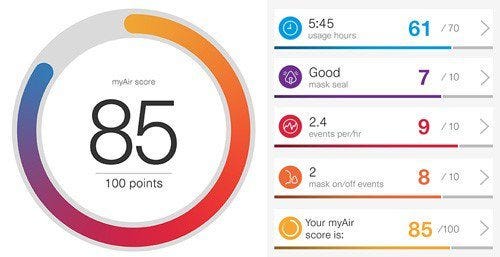
Many manufacturers of CPAP equipment understand this and have taken great strides to design machines, masks, tubing, humidifiers and other accessories that are easy to adapt to and easy to use every single night.
Philips Respironics DreamStation - Example of Innovation to Improve CPAP Compliance
The DreamStaion by Philips Respironics, is an excellent example of how one company is working to improve CPAP compliance.
Based on more than a year of customer use and input and through advancements in software algorithms and the marriage of proven patient-centric technologies, Philips Respironics has delivered a high level of sophistication in an intelligent therapy device. The industry-leading DreamStation consistently receives some of the highest patient satisfaction ratings among all CPAP machine on the market. Here are some of the improvements and great features built into the DreamStaion.
Reduced sound levels: Testing by an independent, third-party laboratory shows that the DreamStation and ResMed AirSense have become whisper quiet. At 30 decibles or below, noise is not longer a factor when considering a CPAP machine. Noise-reduction is a major part of how companies can improve CPAP compliance.
Humidity control: Five dial settings and other advanced features let users receive a consistent delivery of relative humidity at the mask to meet their personal needs. Many people find CPAP therapy much more comfortable when the pressurized air has a little humidity added to it, because noses and throats are less likely to feel dry. The optional integrated humidifier available with the DreamStation has a swivel mount on top so the machine is not pulled by the hose during sleep. The humidifier chamber is one piece of dishwasher safe plastic for easy removal and cleaning.
DreamMapper App: This intuitive mobile app allows users to take an active roll in their therapy, providing motivation and alerts based on nightly machine data. It speeds up compliance. Both the machine and the app offer daily progress reports.
Automatic Pressure Adjustment: The PAP device automatically adjusts pressure levels to deliver the lowest pressure possible for therapy, even those based on allergies, weight gain or loss, and different sleeping positions.
Flexible Pressure on Exhalation for Comfort: By lowering pressure at the beginning of exhalation and softening pressure transition from inhalation to exhalation, the user then experiences a much more natural therapy. This CPAP machine delivers just the right amount of pressure on a breath to breath basis to make CPAP therapy more comfortable which facilitates quicker compliance.
Rainout prevention: By controlling relative humidity output at the mask, rainout is prevented under most circumstances. Moreover, heated tubing further prevents water retention in the tubing.
Connectivity through either cell phone or WiFi are available with integrated Bluetooth® so that doctors and patients can access nightly data in order to optimize or customize settings for the best user experience.
Pressure Relief includes a ramp-up feature to gradually increase pressure after the user falls asleep. The machine also offers pressure relief by offering only 90% pressure of the previous night to help users acclimate to CPAP therapy also speeding up compliance.
Ambient Light: Since we now know that any light in a room can disrupt sleep, the ambient light sensor on this machine ensures that the screen lighting will not interfere with the user’s sleep.
Additional DreamStation features include:
- Advanced event detection
- Mask fit check
- Capable of connecting an Oximetry device (measuring oxygen and pulse)
We hope this article has been helpful to learn how to improve CPAP compliance and get to know a little about some of the great CPAP machine features available to help you do just that. At The CPAP Shop, we’re committed to providing the best in products, services, and education to people who have sleep apnea, always with the goal of increasing compliance, increasing comfort and increasing the quality of life for every patient.
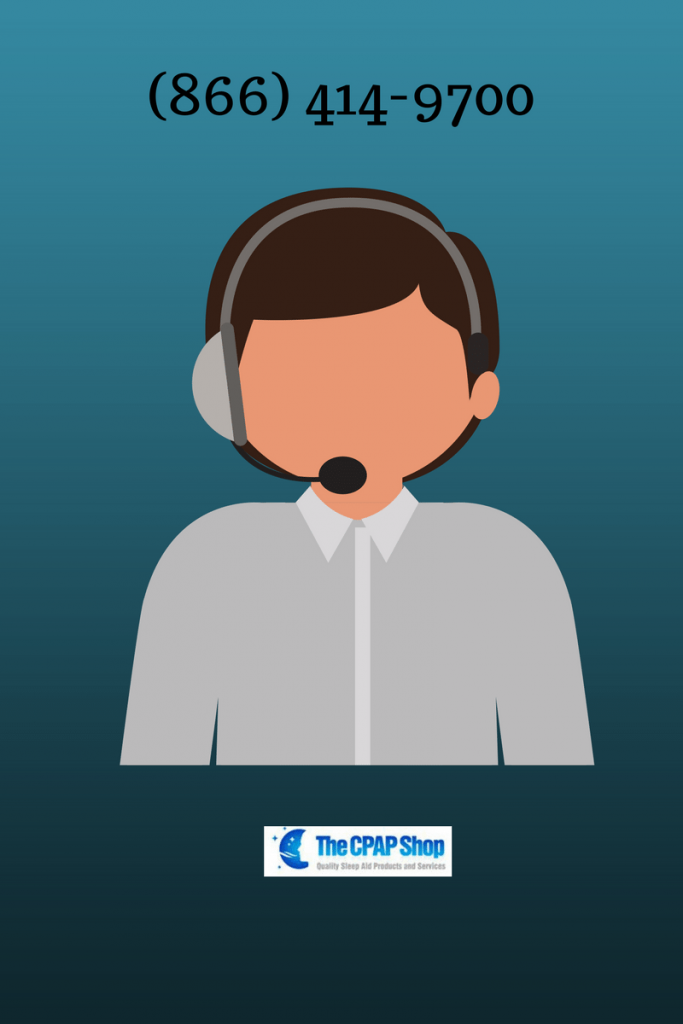
Additionally, if you want to know more about CPAP products and accessories, call The CPAP Shop at (866) 414-9700.
Chris Vasta is the president of The CPAP Shop and an expert in sleep and respiratory therapy. He often provides insights on product design and functionality on various manufacturers’ prototypes.
CPAP Compliance. It’s a word that people with obstructive sleep apnea hear regularly, and also concept that’s critically important in making sure patients experience the positive benefits their therapy is designed to provide. Simply put, compliance means following through with all aspects of therapy as prescribed by your physician. Below we present an overview of sleep apnea followed by seven helpful tips on how to improve CPAP compliance.
What is CPAP Compliance?
CPAP compliance is the measurement of how much you use your CPAP equipment and if it is working for you. In most instances, to be considered "compliant", a CPAP patient must use their CPAP machine for at least 4 hours a night for 70% of the nights they sleep. This measurement will be used to determine how effective CPAP therapy is for you. However, if you are a new CPAP user, getting compliant and comfortable with CPAP therapy may take about 4-6 weeks.
Overview Of Sleep Apnea
The tip on how to improve CPAP compliance is to understand the disease. Obstructive sleep apnea is a medical condition that affects an estimated 18 million American adults, many of whom don’t realize they have it and are classified as undiagnosed. The condition is characterized by periodic breathing stoppages during sleep, some lasting as long as two minutes and happening several or as many as 100 times per night. The result is decreased blood and oxygen flow to the brain, which leads to common symptoms such as daytime sleepiness and mental lethargy. Left untreated, sleep apnea can cause many health problems including:
- High blood pressure
- Stroke
- Heart failure/heart attack
- Diabetes
- Depression
- Headaches
- Increase in ADHD symptoms
Why Learning How to Improve CPAP Compliance is Important
As unfortunate as sleep apnea may sound, there is a form of treatment that has been documented by many entities, including the Agency for Healthcare Research and Quality (AHRQ), as being least invasive and most effective in treating this disorder. CPAP stands for “continuous positive airway pressure,” provided by specialized airflow machines and a connected mask.
A report from AHRQ stated that a CPAP machine, which delivers the precise amount of air needed to keep patients’ airways open during sleep “is highly effective in improving sleep and related symptoms of obstructive sleep apnea by improving airflow.” Weight loss and surgical options also may be effective, although the evidence behind these treatments is not as strong, according to the report.
CPAP machines come in a variety of styles and sizes; generally, they are small bedside units, and many are designed for convenience when traveling. The machine delivers air through the nose or both the nose and mouth via a mask and connected tubing.
CPAP therapy works for the majority of patients with sleep apnea – but only if they use CPAP machines consistently. Let’s look at how all CPAP users can get the most out of their therapy.
Why Do People Fail at CPAP Compliance?
Some patients may fail CPAP compliance because CPAP therapy is a major adjustment in their lifestyle. Finding the right mask that suits you could be difficult, using CPAP equipment while sleeping at night could be uncomfortable or bring on feeling of claustrophobia, and moew. This may bring lack of motivation and desire to follow through with CPAP therapy. However, once a CPAP patient gets comfortable with their new routine, CPAP therapy is highly beneficial to their sleep and overall long-term health.
12 Tips to Improve CPAP Compliance
1. Be Proactive About Your Treatment
Take time to ask your doctor or equipment provider questions in order to become knowledgeable about the disorder and your treatment options. Understand how the equipment works and what you should expect as well as your part in the process. Don’t hesitate to try something new if what you’re currently doing isn’t working. This goes for the CPAP supplies, your doctor and your equipment provider.
2. Educate Yourself
To achieve the best results from CPAP therapy, it is best to continually educate yourself on the best tips and tricks for successful CPAP treatment. This can include staying up to date with the latest CPAP products or even reading blog posts online about different CPAP-related topics. Here at The CPAP Shop, we provide hundreds of articles and so much knowledge that can be beneficial to your long-term success with CPAP therapy. Check out our blog which is updated weekly!
3. Understand the Latest CPAP Technology
CPAP equipment is constantly improving thanks to the many advances in technology in recent years. Manufacturers are making products lighter, more portable, more comfortable, more usable, and more efficient. The CPAP Shop is a good place to start keeping up on the latest and greatest machines, masks, and accessories.
4. Choose the Right Machine
CPAP machines come with many different features and benefits. It's important to get one that is the most suitable for you. CPAP machines also come in travel-friendly sizes that are intended for use while traveling or on the go. Check out The CPAP Shop's wide range of CPAP machines.
5. Get the Proper Humidification
Humidification adds moisture to the air when receiving CPAP therapy, resulting in a more comfortable experience. Without the proper humidification, a CPAP patient can experience dry mouth, dry eyes, or dry nostrils. Humidification can cure those issues without causing any more work for the patient. Additionally, many CPAP machines now have built-in humidifiers that users can set to their preferred preferences.
6. Get a CPAP Mask that Fits
Mask issues – specifically the way they fit – are often the reason patients don’t use their machines every night. No single CPAP mask is right for everyone, and it may take a few trials to find the ideal mask. Make sure the size is correct and the fit is comfortable to your facial structure when you’re awake. Because if not, it will be difficult to fall asleep. Consider having a few masks in different styles so you can change them if you experience soreness in pressure points or just to change things up.
7. Keep Your Machine, Mask, and Tubing Clean
Make the cleaning of your CPAP mask and tubing part of your daily routine. CPAP cushions and tubes that aren’t cleaned can lead to stuffy nose, colds and bacteria. These issues will negatively impact CPAP therapy and reduce compliance. Special wipes and cleaners are available to make this job easier. Also, the SoClean has been a very useful and popular item and the convenience factor alone is worth it.
8. Replace CPAP Filters When Needed
Without a clean filter, CPAP patients miss out on optimal treatment. Even if they do comply with their doctors’ usage recommendations. As dust and particles collect in the filter, they restrict airflow, which forces the machine to work harder. Moreover, dust and debris can get into the tube and mask and finally into a user’s breathing passages. Replacing a filter is a simple procedure, and should not be neglected. Learn how often to replace CPAP filters and other supplies.
9. Buy Only What You Need to Improve CPAP Compliance
It’s not always necessary to buy a new CPAP mask if only parts need to be replaced. Cushions will break down and headgear will eventually lose its pliability after many washings. When buying your mask, find out what parts can be replaced. Stock up on a few, because compliance is always easiest with comfortable and well-working equipment.
10. Long-Term Support And Troubleshooting
It is recommended to see your doctor regularly if you have sleep apnea and use CPAP equipment. They can ensure your products are being used correctly and your prescription is accurate.
11. Set Reasonable Expectations
If you’re a new CPAP user, you’ll probably experience some changes in your lifestyle. It’s important to understand CPAP therapy and determine how it will impact your quality of life. Sometimes it takes a time to get comfortable with all the new elements, so be patient and set reasonable expectations. Turn to resources such as forums, chat board and equipment providers like The CPAP Shop, which can help at every turn. Most importantly, always work toward consistency and full compliance with your recommended therapy.
12. Have a Support System
Having a group of people around who support you and your therapy could also help improve compliance. Whether its loved ones or a CPAP-related community online, it is advised to have people to talk to about your treatment. It also encourages you to keep going, and you may even learn a few things from others.
Advances and Innovations to Improve CPAP Compliance
For some patients, CPAP machines can be loud and masks can be uncomfortable. The whole process of CPAP therapy is off-putting for certain individuals. And this is where compliance comes in: if the system is annoying, patients won’t comply with treatment as prescribed by their physicians.
Many manufacturers of CPAP equipment understand this and have taken great strides to design machines, masks, tubing, humidifiers, and other accessories that are easy to adapt to and easy to use every single night.
Conclusion
We hope this article has been helpful to learn how to improve CPAP compliance and getting to know a little about some of the great CPAP machine features available to help you do just that. At The CPAP Shop, we’re committed to providing the best in products, services, and education to people who have sleep apnea, always with the goal of increasing compliance, increasing comfort, and increasing the quality of life for every patient.
Additionally, if you want to know more about CPAP products and accessories, call The CPAP Shop at (866) 414-9700.



